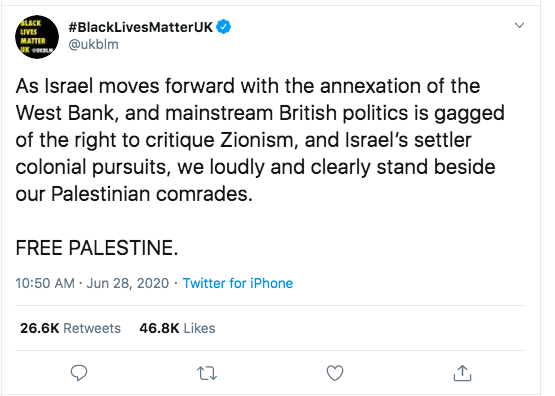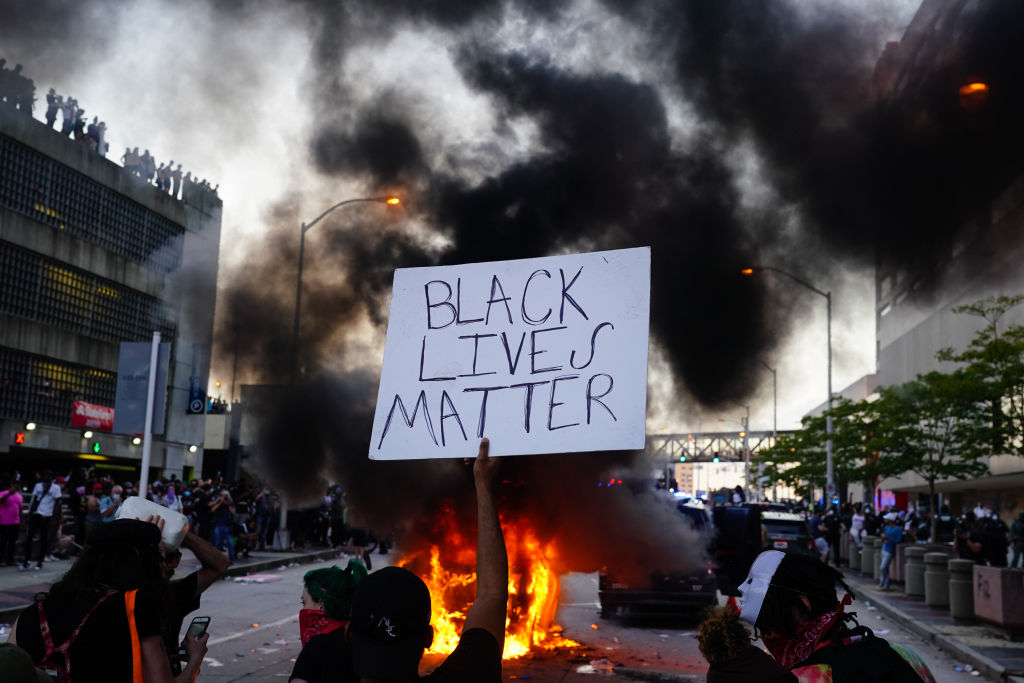Most of us have remained largely silent as we watched the scenes of disorder and destruction around the country in recent weeks. Driven by the desire to be clear in our opposition to racism, we turned a blind eye as protestors abused and injured police officers, chasing them around the streets of London with impunity. We stood aside as they defaced key symbols of our history and bowed cowardly institution after cowardly institution to their will. We watched spokespeople for this movement declare a cultural revolution and pretended we did not know what that meant. We can no longer afford to maintain this façade of ignorance and docility.
Do I believe the lives of black people matter? Of course. Do I think racial injustices must be addressed, and with urgency? Absolutely. Do I support a neo-Marxist organisation that wants to ‘dismantle capitalism’, ‘defund’ the police and undermine the nuclear family? No. There, I’ve said it. I do not support the Black Lives Matter organisation. Neither should you.
Although I’ve always had strong reservations about the organisation, the turning point for me came this weekend when we discovered that Black Lives Matter UK had some interesting thoughts about Israel:

If up until this moment you had believed that BLM was devoted to securing justice for the horrific killing of George Floyd or a broader struggle for racial equality, it might have been tempting to assume that Rebecca Long-Bailey had been accidentally given the reins over the movement’s social media strategy. However, to anyone paying attention this development was entirely unsurprising.
Black Lives Matter co-founder Patrisse Cullors said in a newly-surfaced video from 2015 that she and her fellow organisers are ‘trained Marxists’. BLM UK’s fundraising page, which has secured funding of over £1 million, suggests that the money will be spent on ‘developing strategies for the abolition of police’ and ‘dismantling capitalism’.
We must begin to take these people at their word and act accordingly. This is not about eliminating discrimination, it is about applying it in reverse.
Many of us have been warning for some time that the inevitable consequence of identity politics – the idea that what matters most about an individual is not the content of their character but which supposed ‘community’ they come from – will inevitably lead us to the place we are now in. We are told repeatedly that there is such a thing as the ‘black community’, the ‘British Asian community’ and so on. This is a lie.
Black Britons from different backgrounds often have less in common with each other than they do with other ethnic groups. A recent arrival from Nigeria may have more in common with someone like me, a first-generation Russian Jewish immigrant, than they do with someone whose family came here generations ago from the Caribbean. There are huge disparities between educational and career outcomes for Britons of African and Caribbean descent. The same is true of British Indians and Pakistanis who are insultingly lumped into one ridiculous acronym after another as we cede larger and larger swathes of the alphabet. There is no such thing as the ‘black’ experience, the ‘brown’ experience or the ‘immigrant’ experience. I know this will come as a shock to the guilt-ridden chattering classes but not all of us think the same.
All of this nuance has been absent from our public debate for decades. Instead we have been fed a steady diet of the damaging, counterproductive narrative that is now euphemistically described as ‘anti-racism’, an approach that will set race relations back by decades. According to this narrative, the best way to prevent racism is to obsess constantly about race. Rather than striving for a colour-blind society, which we are now told is the very definition of racism, we must instead be hyperaware of race. As I have said repeatedly, if we make any more ‘progress’ down this path, we’ll end up with two sets of drinking fountains.
The tragedy, of course, is that many sensible commentators, including those from ethnic minority backgrounds, have been predicting this for some time. Mostly their warnings have fallen on deaf ears as the overwhelming majority of the mainstream media continues to ignore them. Where, as in the case of someone like Trevor Phillips, they cannot be ignored, it has become perfectly acceptable among some to describe dissenting minority voices using awful labels such as ‘coconuts’, ‘oreos’, ‘race traitors’ and ‘bounties’.
The truth about these pink-haired revolutionaries and those who encourage and support them is that they believe that skin colour matters more than who you are as a person. They believe that white people who don’t agree with them should be described as ‘gammons’ and use racist language towards minorities who speak out against their ideology. We must resist this divisive agenda before it is too late.






Comments